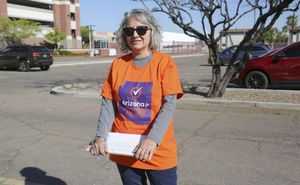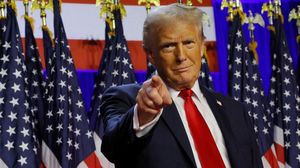Drake has recently initiated legal action against Universal Music Group (UMG) and Spotify, alleging the two companies engaged in unethical practices to artificially boost the popularity of Kendrick Lamar's diss track "Not Like Us." The song has stirred intensified scrutiny due to its inflammatory lyrics aimed at Drake, deepening their already notorious feud.
The legal filing, submitted by Drake's company, Frozen Moments LLC, details shocking allegations, including the use of bots, payola systems, and other illicit strategies ostensibly orchestrated by UMG to manipulate streaming numbers. According to the filing, the scheme was crafted to amplify the track's reach on major platforms, such as Spotify and Apple Music, which are pivotal for artists wanting to attain chart success.
Drake's petition cites significant violations, including accusations of breaching the Racketeer Influenced and Corrupt Organizations (RICO) Act—a law originally intended to combat organized crime. The suit also claims UMG has engaged in deceptive business practices and false advertising under New York law. This escalation from lyrical confrontations to courtroom battles marks an unprecedented transition within the hip-hop community.
"UMG did not rely on chance, or even ordinary business practices," Drake's legal team asserted. "It instead launched a campaign to manipulate and saturate the streaming services and airwaves." These allegations reference specific tactics reportedly employed by UMG, such as providing steep discounts on licensing fees to Spotify, which would encourage the platform to promote Lamar's song over others without disclosure.
The backdrop of this lawsuit is the longstanding rivalry between Drake and Lamar, which has played out through various public exchanges and diss tracks over months. Lamar's recent releases, particularly his new album, seemed to reignite their tension, with "Not Like Us" serving as one of the pinnacle points of attack, accusing Drake of scandalous misconduct.
Compounding the situation, the legal documents also mention other streaming platforms, though they focus predominantly on Spotify. UMG's alleged strategy included using bots to generate plays, thereby creating the illusion of popularity. When approached for comments, both UMG and Spotify declined to provide detailed responses, signifying the sensitivity and complexity of the claims.
The shock value of this lawsuit is amplified by the careers of both rappers within the UMG umbrella. Drake has been affiliated with UMG throughout significant phases of his career, whereas Kendrick has similarly benefitted from UMG's extensive industry reach via his own label, pgLang, which continues its partnership with UMG.
Drake's attorneys have emphasized the need for accountability, stating their client has attempted to engage UMG for discussions prior to resorting to legal proceedings. They argue UMG dismissed attempts to resolve grievances, thereby necessitating court intervention. According to Drake's side, the adjustments within UMG included terminating employees suspected of supporting him, raising concerns over transparency and fairness within artist representation.
Drake's move toward this legal pathway could potentially change the game for artists dealing with labels. If UMG was found exercising shady tactics to push one artist above another, it could set significant precedents for operational integrity within the music industry.
This legal struggle not only heightens the drama surrounding Drake and Lamar but also calls attention to broader issues of how streaming numbers can be manipulated amid competition for artist visibility. With major financial stakes involved—the success of songs often translates directly to revenue through streams—this lawsuit emerges as one of the most notable disputes of the era, reflecting the high-pressure environment inherent to modern music careers.
Drake's legal team has carefully articulated the potential repercussions of what they label as UMG's wrongful actions. They indicate this not only harms Drake's reputation but threatens his career financially and artistically. The outcome of these deliberations could reshape expectations both from major labels and artists alike about the ethics of promotion and the nature of competition within the industry.
Throughout the last few months, as the conflict has escalated, public attention has fixated on the lyrical exchanges and carefully staged responses from both artists. Yet what began as artistic rivalry may now reshape insights on business practices and artist treatment from major labels, particularly as Drake's claims surface for public scrutiny.
The stakes are incredibly high as both parties gear up for what could be long-drawn interviews, disclosures, and confrontations over the validities of the claims being made. For Drake, this action is clearly about more than just rivalries. It's about reclaiming agency and ensuring fair treatment from those who advance his music career.
Drake's legal maneuvering, sparked by the need to challenge UMG's practices, identifies potential cracks within the industry's traditional dynamics. While it is still early to determine the legal outcomes from this pre-action petition, it signals the transformative conversation around accountability and fairness among prominent figures within the hip-hop genre.
Moving forward, the dialogue surrounding this feud will likely not just be limited to lyrical battles but also encompass serious questions of integrity, equity, and the lengths industry players will go to dominate the charts. This moment could serve as pivotal for many artists challenged by the same systemic issues, showcasing how highly competitive the music scene has evolved amid battles for recognition and respect.
Should Drake win this legal battle, it may promote not only changes within UMG but across the industry, prompting labels to reevaluate how they support and market their talent. All eyes will remain on this case as it develops, capturing the intricacies and intrigues of musical rivalry shifting to legal battles behind closed doors.
For now, fans and industry observers alike may anticipate what could come next—will more artists follow suit? The outcome may reshape not just Drake's future but the fabric of artist-label relationships for generations to come.



